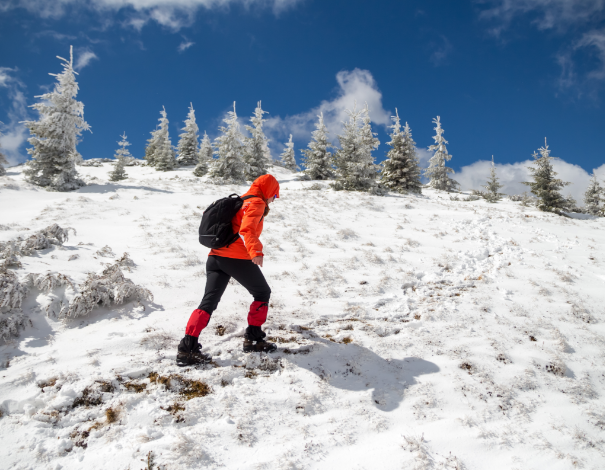From a sailboat in Puget Sound to a hospital bed; from stomping through the jungles of Cambodia to receiving chemotherapy. Kristina defined herself by her zest for adventure and travel. Then she was diagnosed with myelodysplastic syndrome (MDS), a rare disease that was discovered by chance, with no symptoms. Her disease quickly turned into acute myeloid leukemia (AML) and doctors told her she needed a transplant as soon as possible.
Luckily, Kristina found a matching donor and had a blood stem cell transplant soon after diagnosis. But as she would find, this was just the beginning of recovering her fiercely independent sense of self and an active lifestyle. Here’s her story, in her own words.
Cancer wasn’t ever supposed to happen to me. I was attracted to living life on the edge and suddenly, I was told I was dying. Did they know who they were talking to? Maybe it was the New Yorker in me, but there was no way this was getting me down.
Going into treatment, I knew I wouldn’t be able to be the individual I have always been or lead the lifestyle I was so passionate about. I knew I had to accept the transition and take my recovery one day at a time. Simplifying my perspective helped me make it through that time in my life. Just as I had packed my backpack for countless trips, I decided to pack my emotional backpack and get through it. The sun will always rise again in the morning and set the next day.
After transplant, the biggest thing for me was getting back my quality of life. I knew I would get there no matter what. Though my recovery went well, I had a flare-up that was a devastating setback. I developed graft-versus-host disease (GVHD) and spent so much time on the couch watching TV that it scared me. It made me realize how easy it was to curl up in a ball every day, how easy it would be to slip into feelings of self-pity.
As post-transplant survivors, we have to drag ourselves out of it. It took a lot of self-motivation. The initial step of recovery is to just get moving. It sounds cliché to say, ‘just get up,’ but it’s true. Whether you do this alone, with a caregiver or through a program, little steps make a big impact.
I joined Team Survivor Northwest, an organization that provides fitness programs for women cancer survivors, and attended every class to help regain my quality of life. I succeeded in getting stronger and bonding with other women whose lives were affected by cancer.
My ‘new normal’ included my mindset, physical changes, how people reacted to me and my emotional well-being. And while I experienced many changes and realized new things about myself, I was able to get back the part of my life that I loved.
It’s amazing to live through such an experience. Look at what we, as transplant recipients, have done already! If we can beat a disease, we can get through the recovery as well.
Your sense of self
You may feel like you’re balancing the life and person you know now and who you were before your disease. Think about the emotional, physical, spiritual and social changes you’ve experienced and use these changes to assess your sense of self. Ask:
- In what ways have I remained the same? In what ways have I become someone new?
- What have I gained and what have I lost through my experience?
- What can I do now to help me adjust my expectations and goals? What can I do to help my family accept these changes?

